Yoelish Krauss: "We Know the Truth the Police Aren't Telling You"
Yoelish Krauss, known as the operations officer of the Neturei Karta, insists that the media unjustly vilified Mea Shearim during the COVID-19 pandemic. "People can't even imagine what we've been through."
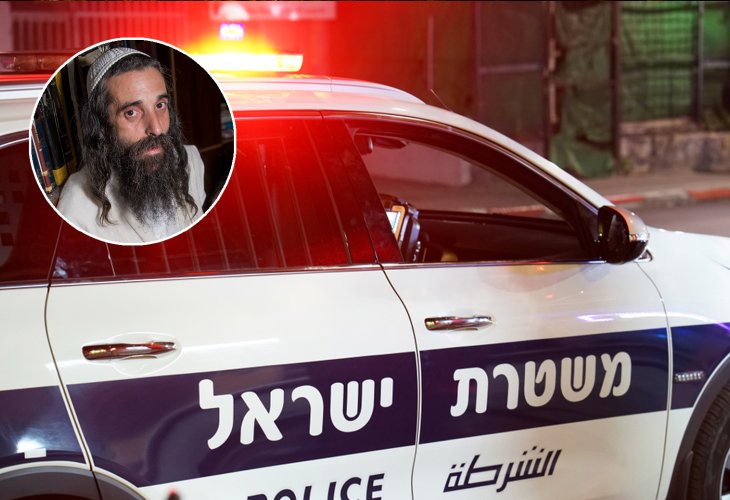 In the circle: Yoelish Krauss (Photo: Flash 90)
In the circle: Yoelish Krauss (Photo: Flash 90)We may be looking at the post-COVID-19 era already, but the effects of the relations between the ultra-Orthodox and secular communities are still ongoing and at an unprecedented low.
It started with the headlines about COVID-19 in Bnei Brak and Jerusalem, and unfortunately, it continued with mutual violence in the Mea Shearim neighborhood. In this extreme neighborhood, it seems very difficult to be in the role of judges and to determine who is right and who is wrong, who started and who ended. What is certain is that it is an extreme group that does not represent the entire sector. Another certainty is that especially in these days it is fascinating to hear from Yoelish Krauss, known as the 'operations officer' of the extremists, who claims: "The pandemic is dangerous, but so is Zionism, whose goal is to uproot religion, dangerous for us."
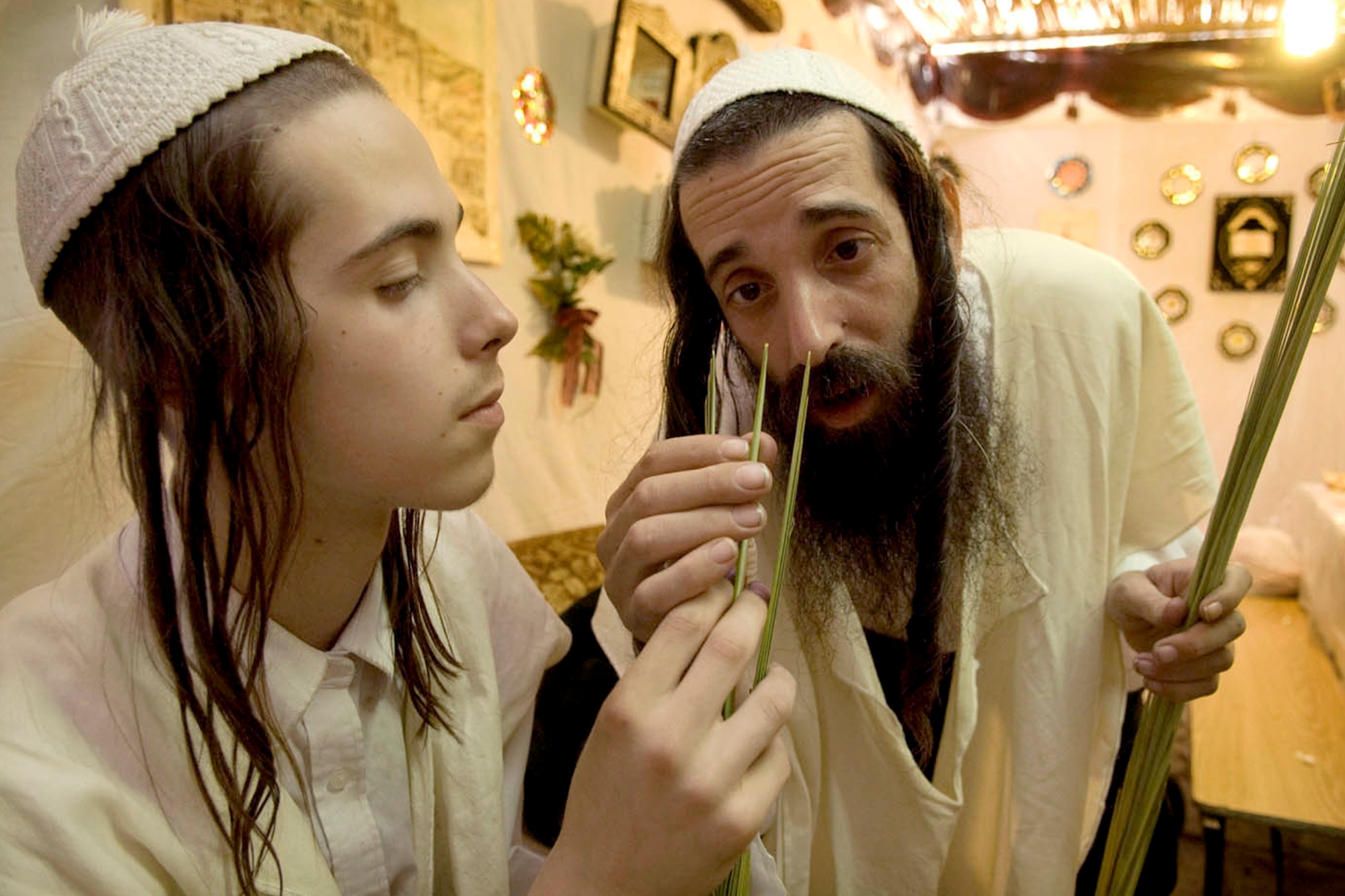
Krauss, 47, is a resident of the Mea Shearim neighborhood and a member of the Toldot Aharon sect. He studied in the institutions of the sect, but even in his youth, he moved closer to the more extreme faction called 'Torah and Awe' of the Neturei Karta. Krauss does not hold an identity card for anti-Zionist reasons; his name also does not appear in the population registry since he was not born in a hospital but at his parents' home. He is married to Rachel, the daughter of Rabbi Avraham Yaakov Epstein, one of the rabbis of the 'Torah and Awe' yeshiva, and the granddaughter of Rabbi Aharon Katzenelnbogen, one of the founders of the Neturei Karta. The couple has eighteen children.
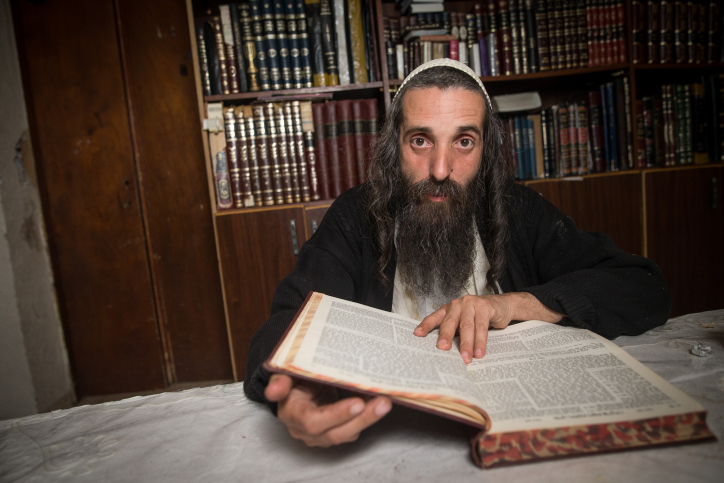 Yoelish Krauss (Photo: Flash 90)
Yoelish Krauss (Photo: Flash 90)
"Interviewing with the Secular Media. Why Not?"
Can you explain why they call you the "operations officer"?
"It's not an official designation, it's something the media put on me due to the fact that I led major battles against grave digging and other struggles in the land of Israel. For eighteen years, I led struggles, but recently I stopped."
Why did you stop? Did you change your ideology?
"No. The story began with the long-running battle we had on Highway 6 against grave digging. We sent out several buses daily, with dozens of protestors who were hurting over the grave desecrations. We got strong blows, but nothing stopped us from the pain for the deceased buried under the road. One day, a scholar entered the study hall who appears in all the demonstrations and said that today we don't need to go protest because it was written in the newspaper that the diggings were stopped. I checked into it and found out it wasn't true; the diggings continued vigorously. We sat with our rabbis and told them: 'If one of ours got confused from an incorrect newspaper report, then it means we need to speak to the media and communicate our views and knowledge.' Since then, I was appointed as the spokesperson for the Neturei Karta."
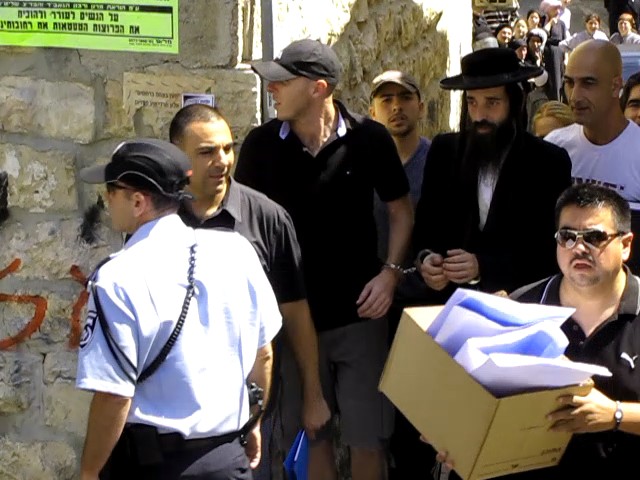
To Krauss' understanding, he didn't advance to become a spokesperson but "fell into the media," as he describes. "Since I started speaking, I stopped doing. But the struggle that expanded into the media brought about an arrangement with Highway 6 after they built a bridge costing 60 million shekels, which bypassed the graves. Because we started talking in the secular media, they heard our view, which led to finding a solution for the dwellers of the dust, who have no one to cry out for."
It's a bit surprising to hear you're being interviewed by secular media
"Why surprising? I feel it's my opportunity to convey important messages, and indeed, I speak to people from all segments of the secular public, and I also guide groups here that want to listen."
Throughout the interview, Krauss sticks to his extreme views, without a hint of willingness to compromise. "I believe that if someone has an opinion, they should go with it to the end," he claims with passion. "It's the only motto that guides me."
"We Follow the Guidelines"
As mentioned, unlike all other countries, where COVID-19 reports were about the number of infections, lockdowns, recoveries, and human tragedies, in Israel the media repeatedly reported on groups from Mea Shearim violating Health Ministry rules and holding synagogue gatherings. Consequently, the police had to disperse these by force and even used excessive force until a nine-year-old girl was hit by a stun grenade and injured.
Why don't you follow all the Health Ministry's guidelines? They're meant to save lives, even your lives.
"We know COVID-19 is life-threatening, but those unfamiliar with Mea Shearim residents won't understand what I'm saying. You need to know that we are completely disconnected from the outside world, we don't know anything, and we get updates about decisions made only a day later. There's no one to talk to us, no organization to manage communications with the government in implementing decisions or providing suitable explanations for the community living here.
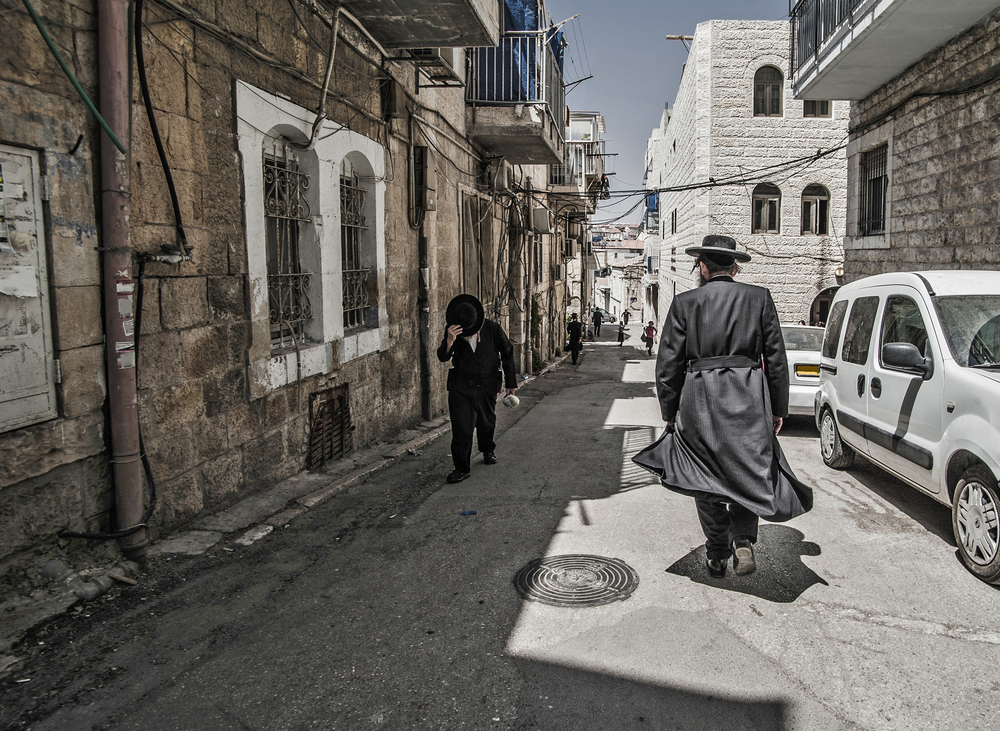 Mea Shearim (Illustration Photo: shutterstock)
Mea Shearim (Illustration Photo: shutterstock)"I'll give you an example: There was a government meeting where they decided to prohibit holding prayer gatherings in synagogues. We didn't know about the decision, most of us at least, and suddenly, a few hours later, several police cars arrived, and they attacked the worshipers. It creates hatred and a desire to act exactly opposite of what is needed."
But anyway, the Badatz did issue safety instructions. Who updated them?
"There's only one organization, 'Yad Avraham', which works with Hadassah Hospital, and it's the only one updating our rabbis on developments."
Krauss adds more: "I have a ninety-six-year-old grandfather, a Holocaust survivor, who didn't understand what we wanted from him. We explained that he mustn't go to pray in the synagogue, and he didn't understand. He had to go to our Rebbe to explain to him that now it's forbidden to go, and only then did he understand. Like him, there are hundreds here, and not all have someone to explain or take care of them."
Krauss also has insights. "When we were children, the Rabbi told us in cheder 'know before whom you stand, before the King of Kings, blessed be He', and to illustrate it to us, he'd say, it's like the telephone - you speak here and someone in America hears you. We also do something here, and Hashem hears. But today, unfortunately, it's exactly the opposite - what isn't filmed doesn't exist, as if it didn't happen at all."
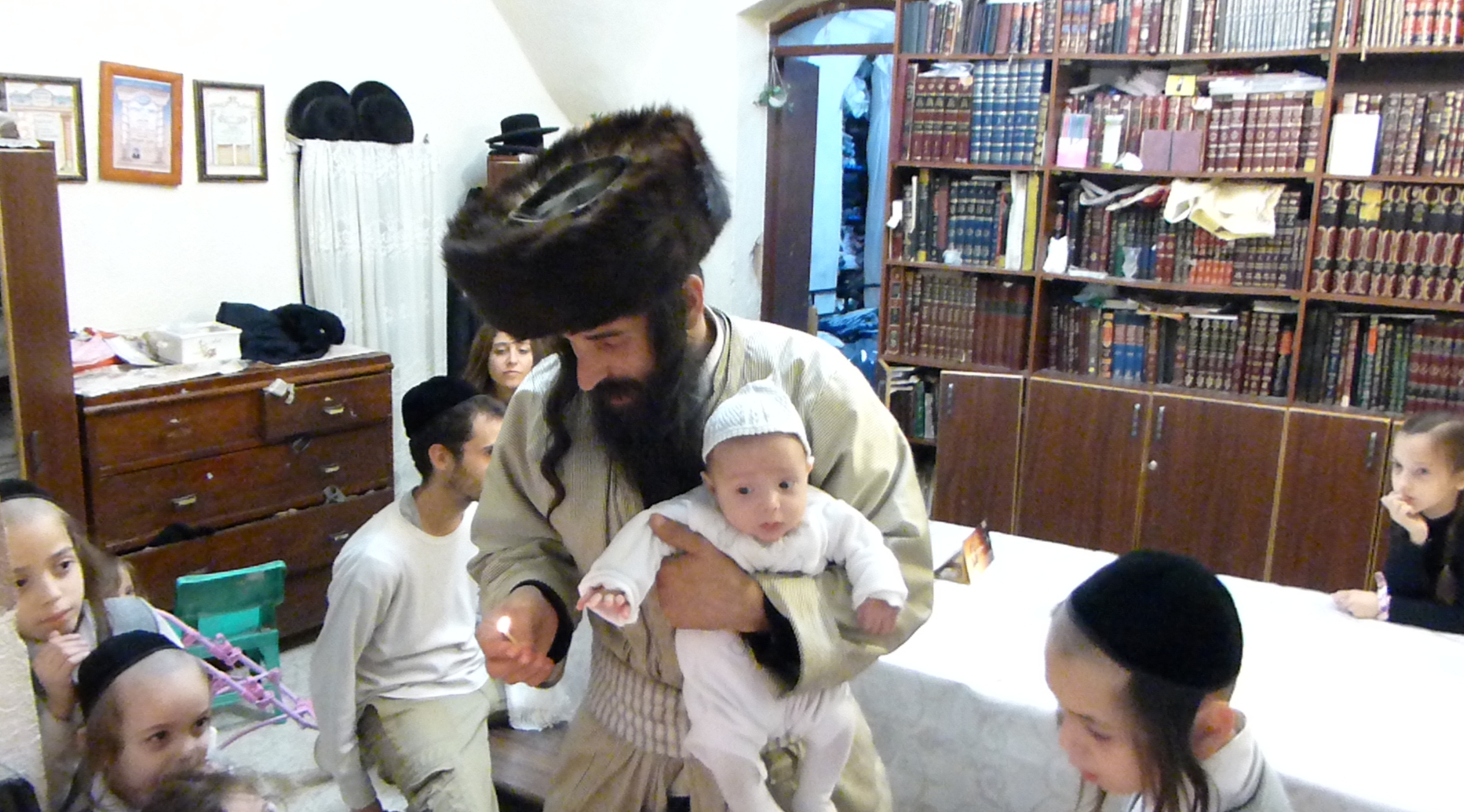
He pauses for a moment and then reveals an unknown detail: "The nine-year-old girl who was hit by a grenade in the face was filmed, and so everyone talked about it. But there was another young woman, a bride before her wedding, who also got hit by a stun grenade, and her face was burned. But it wasn't filmed, so no one talks about it."
He also has an example of another case: "Two days ago, in the middle of the night, large police forces came to carry out arrests in the neighborhood following disorder that occurred a few days before. Then the police spokesperson issued a statement in the middle of the night: 'Haredi protestors poured oil on the road leading to the neighborhood, to delay the police forces'. We woke up in the morning and heard that Haredi protestors poured oil. We decided to check the surveillance cameras of the stores overlooking the road and discovered a completely different story - a truck with an oil tank leaked oil on the road, but it continued on. Subsequently, cars passed by and spread the oil all over the road. As a result, boys who saw the slipping hazard took barriers and blocked the road. We showed the police the footage. They said: 'Oh, it's oil from a truck, we understand.' But no one retracted the statement, nor apologized for defaming our public because there's no one to cry out on our behalf. It's one case that happened to be filmed. But there are dozens more cases not filmed, and we know the truth, and it is not what the police are telling you."
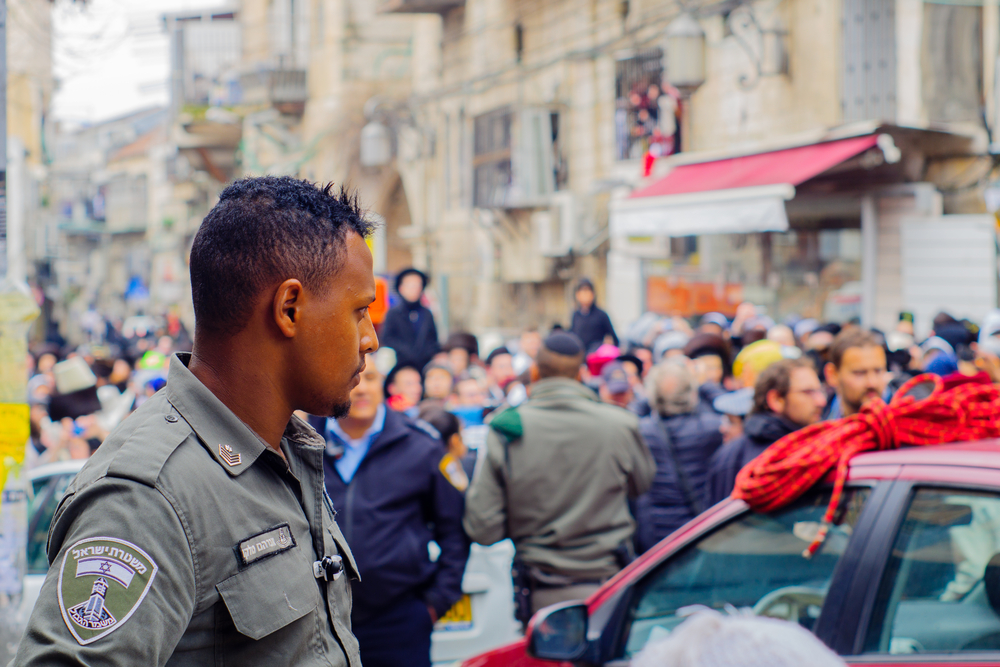 Photo Illustration: shutterstock
Photo Illustration: shutterstockIf you do listen to the guidelines, then why are we witnessing prayers still held in synagogues in the neighborhood?
"Here, there is a different understanding. After all, there's a Health Ministry instruction that in a bus, up to twenty people are allowed. And I ask - why is it allowed in a bus? Because it's necessary for people to get to work. Without work, they can't manage. So for us, it's also very necessary to pray in the synagogue up to twenty people. Why a bus yes and prayer no?"
Krauss wants to emphasize that sensitivity to the synagogue is at a very high level. "In Kiryas Joel, in America, the Rebbe said not to go to the synagogue because of the danger, but also not to close the synagogue, because you don’t close a synagogue. In a case in Beit Shemesh, one resident who collapsed from COVID-19 was in a very severe state. One day his child said to me: 'Tomorrow my father wakes up.' I thought he was just saying it, like any child who wants their father to wake up. But the next day, his father woke up. I asked him: 'How did you know?' He said he understood that his father collapsed because they closed the yeshiva where he gave lessons, and there was no Torah to protect him. But yesterday they said the yeshiva opens today, so I understood that dad has to wake up. A child's innocence. But that's how we believe."
Some might ask if because of this belief you think it's permitted to throw stones at police officers
"Absolutely not. It's not the way of Judaism to act violently. Our leader, Rabbi Amram Blau z"l, never raised a hand against a police officer. He took many beatings, but he wasn't violent; it's not our way. I want to emphasize that those who throw stones here are not even an extreme minority, but random ruffians. They are not connected to us, and we strive to remove them from the neighborhood, only that it doesn't always solve the problem, because new ones come after them."
"Mea Shearim Is Not One Block"
Krauss' name hit the headlines also in 2016 when the police arrested him and closed the slaughterhouse he owned due to illegal activity. Krauss was sentenced to seven months in prison and a fine of 50,000 shekels. After an appeal in the district court, the prison sentence was reduced to five months, and Krauss initiated an appeal process in the High Court of Justice, which was not accepted. In 2017, a project was launched to assist him in paying a fine of 250,000 shekels he owed for VAT and income tax, and to help him and his family through this difficult time. On May 10, 2017, he began serving his sentence in Ma'asiyahu Prison. After about a month and a half, on June 29, 2019, Krauss was pardoned by President Reuven Rivlin.
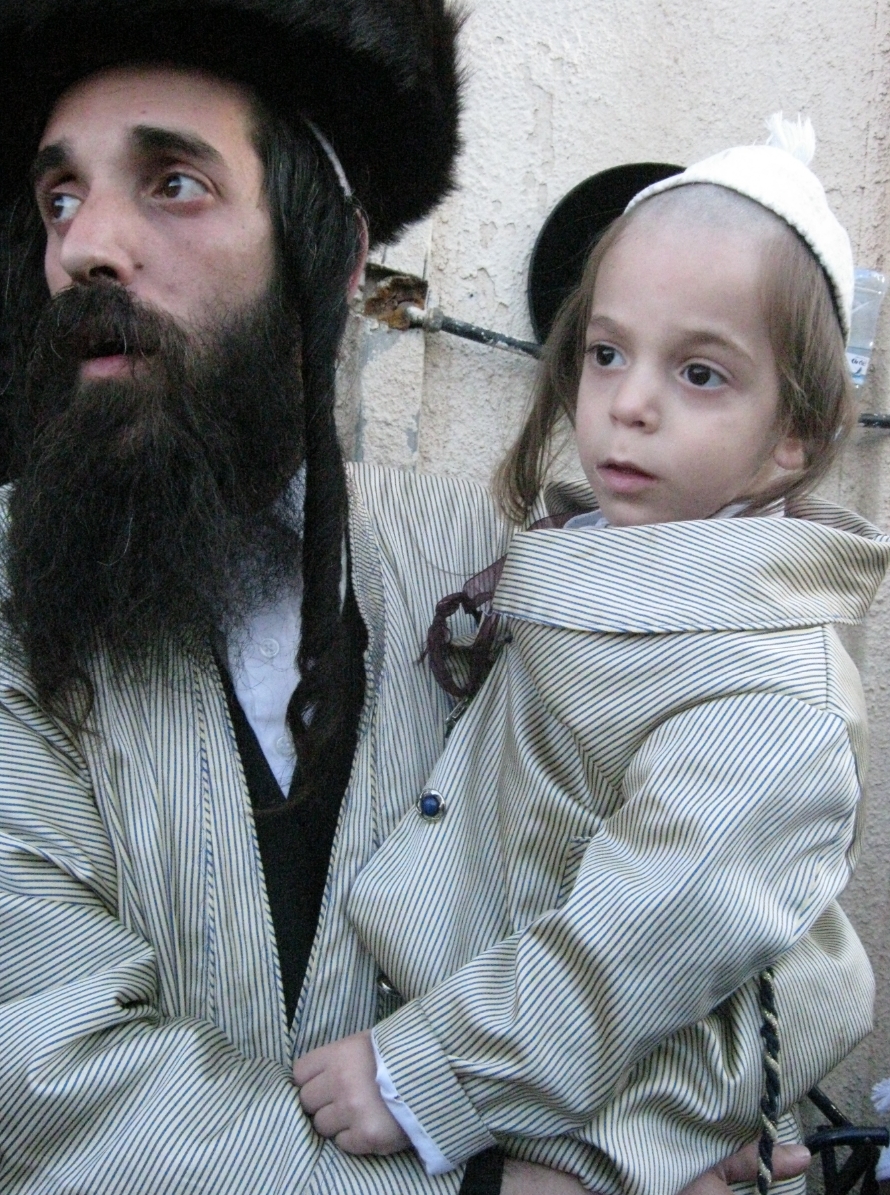
Why did the President decide to grant you a pardon?
"Hashem blessed me, and I currently have eighteen children, without the evil eye, may they multiply. While I was in prison, I had sixteen children, and my wife was about to give birth to our seventeenth child. I submitted a request for a pardon, and then-Justice Minister Ayelet Shaked did not agree to the request. Later, a friend of mine visited my home and saw how my wife was managing alone with the children. He filmed it and sent it to the current Minister of Transport, Bezalel Smotrich. He called the Justice Minister and explained that I had to be pardoned, and then my pardon request was submitted to the President, who approved it. It was the first pardon he granted as President."
When I ask if he feels grateful to the President, Krauss says: "The President isn't the one who decides; he's just a rubber stamp for the Justice Minister."
Do you feel grateful to the Justice Minister?
Krauss shrugs his shoulders. "The mouth that prohibited is the mouth that permitted. The one who slandered me with the entire libel is the Justice Ministry, so I have no reason to thank them for not punishing me for their slanders."
Krauss had to end the interview due to several calls he needed to make, but just before then, he wanted to note something in conclusion: "We can talk and talk and never encompass all the topics, but what's important to me is that people understand that Mea Shearim is not a single piece or block of people. There is a wide variety of different opinions and rabbis here."

